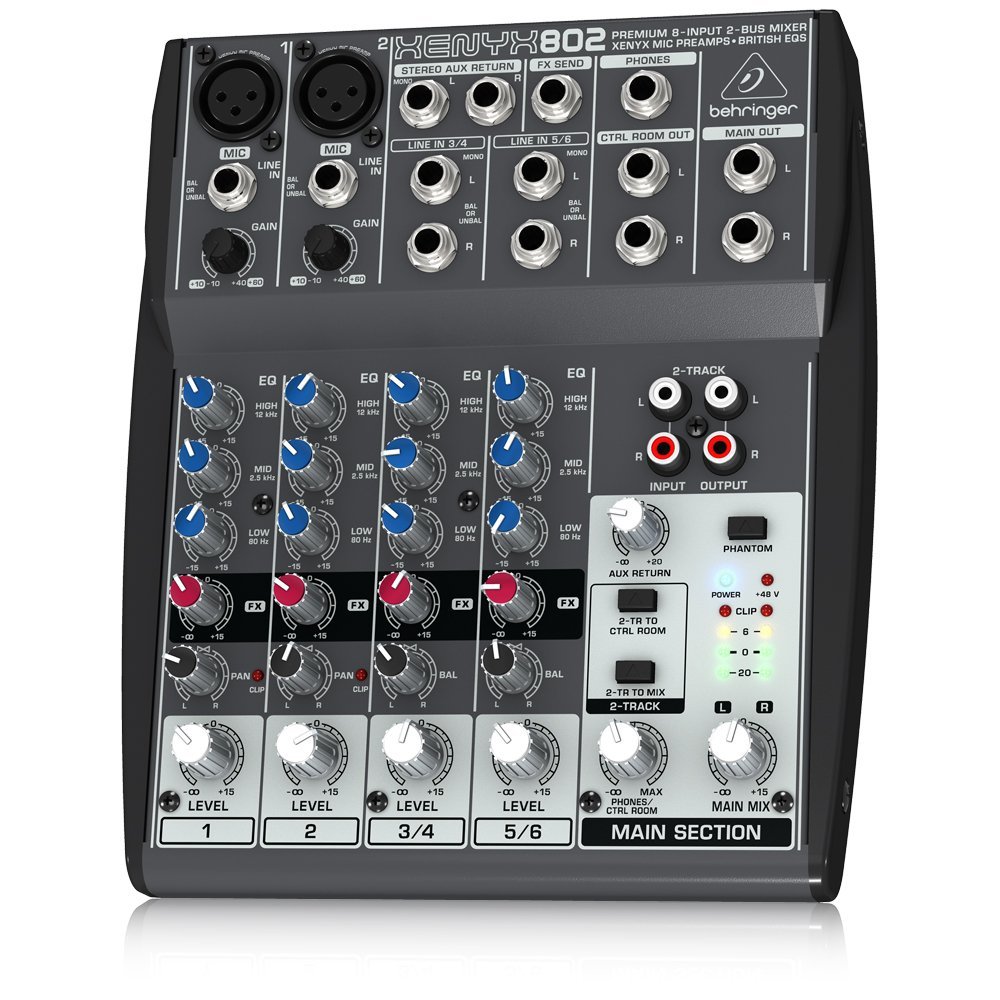Is it really necessary to use a mixer when podcasting? Well, you can podcast without one, but using a mixer will improve the quality of your audio. The pre-amps are nicer and will really help your mic shine. But if you already have a good mic, then this won’t make as much of a difference.
For audio engineers, mixers improve the quality of audio, but for podcast mixers offer them options and controls together with efficiency in recording. Below are compelling reasons why you need the best mixer for podcasting or audio recording.
Features You Need In A Podcast Mixer

Ability to use other pro kits
If you want to use professional quality microphones that use pro type cabling such as XLR and also to get the best out of them, then you need a mixer. Some may argue that you can use XLR to USB converters, therefore, not having to need a mixer. But they need to remember that they won’t be able to take advantage of the quality of their microphone.
Multi-channel control
One of the simplest, but biggest advantages of using a mixer is that it gives you control over the individual channels of your audio. Without a mixer, you will only be able to record on one channel. This means that quiet people will be quiet and loud people are loud. With mixer, you can actually turn down the shouters, and turn up those quiet ones. On top of that, you can record these individuals on different channels and work on improving the quality of the audio post production.
Inline enhancement
Multi-channel capability and inline enhancement work hand-in-hand and are perfect for improving your audio. They can also help you save a lot of money when doing post production. The ability to use gain, equalization, and high-cut or low-cut filter on each individual channel is smart. On top of that, some mixers have limiters and compression that can do wonders when it comes to the quality of the audio.
Backup and reliability
Unlike computers and digital recorders, mixers do not crash. A mixer will help you reduce flakiness and noise by cutting out the computer component altogether. Alternatively, you can record using software and with the mixer as a backup recorder. The digital recorder can receive a second output.
Live podcast production
A mixer gives you the ability to do live producing. This means that you can add your sound FX, recorded messages, music, and anything else that goes into your show on the fly. Live production is like a radio show, so there is no post production, therefore, everything needs to be done in the right way and quality. With a mixer, you can simply hit record, do your show, and do some EQ or compression in post production, and that’s all.
You can do the live recording by recording on one channel and plugging in a device to play your sound FX on another. You can simply use a laptop or PC to play the sound FX.
This is the best way to do a podcast. Hearing your music playing at the start of a podcast is great. This gets you hyped up before fading it down and enthusing your welcome into the microphone. It is a great idea to play stings and bumpers and to react to them. Another idea is to play effects anytime your co-host does something. This way he or she can listen to it too and react. A mixer makes podcasting quicker and more enjoyable, that is why you should get it. Another thing is you won’t have to go through the hassle of editing your audio, and if you have to, the editing will be at a minimum.
Mix minus
Mix-minus comes in when working with a co-host. Mix-minus allows you to do live production with someone is not physically present, but in a remote location.
Your co-host will be able to hear you and the FX and also hear his or her own voice back when connected to your normal recording setup is connected to Skype. This set up has a horrible echo. But with the best podcast mixer, you have the mix-minus feature, which simply means that your co-host will hear the full mix, that is, music, voice, FX, etc — minus the co-host’s voice.